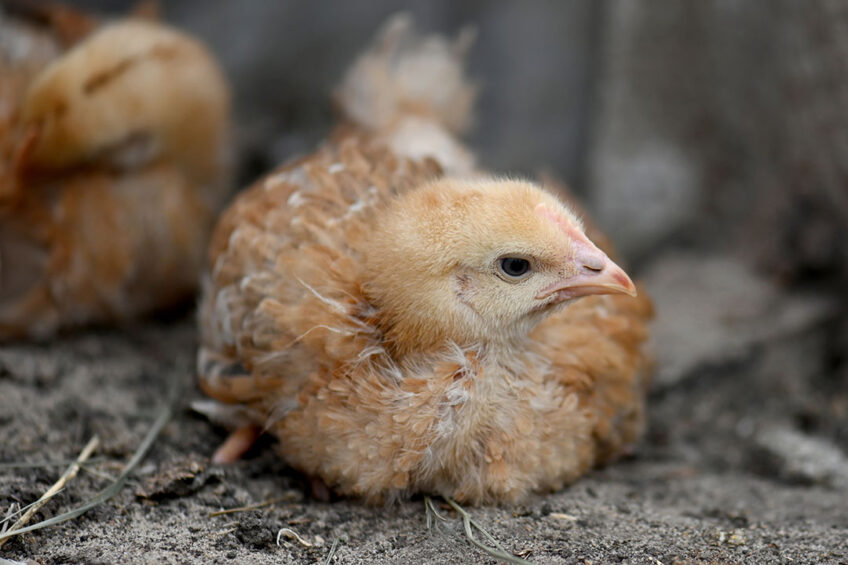Impact of maternal nutrition on offspring: Focus on selenium

Selenium (Se) has long been recognised as an essential dietary nutrient that plays important roles in animal health and productivity.
Benefits of organic selenium in poultry
There are 2 main sources of Se in the diet: organic and inorganic.
Organic Se has higher bioavailability and antioxidant properties, higher rates of Se accumulation in eggs and body tissue, and lower toxicity as compared to inorganic Se. Dietary organic Se fed to breeders is highly efficient in the deposition of Se in eggs. The higher the Se level in the egg, the higher the amount distributed among the developing tissues during embryogenesis. This results in an improved immune and antioxidant defence in the offspring.
Selenium is all about L-selenomethionine
Recent findings have shown that specifically L-selenomethionine (L-SeMet), a pure form of organic Se, is able to improve the performance of breeders to the highest extend. Supplementation to breeders has resulted in better sperm quality, improved fertility and hatchability.
Additionally, it results in improved health and performance of its offspring. L-SeMet, specifically, is built into the protein fraction of eggs and animal tissues, and will therefore act as a reservoir for future needs. This enables the metabolism to use the available Se more effectively and consistently. Optimising maternal nutrition with a high bioavailable source, such as L-SeMet, in order to see a high return on investment in the offspring is crucial.
Maternal programming
Egg composition is directly linked to the quality of newly hatched chicks. Recent gene expression analyses have revealed that this effect lasts longer than just the early days of life. Maternal nutrition has a profound and long lasting effect on growth and development. This phenomenon is called maternal programming and is based on improved gene expression regulation in the offspring. Selenium is involved in a multitude of processes and the supplementation of organic Se, specifically, to breeders has been shown to improve metabolic processes in the offspring.
Laying hen breeders
A study was carried out in Togo (West-Africa) to investigate the effects of sodium selenite and L-SeMet (Excential Selenium 4000) supplementation in the diet of laying hen breeders (Sasso) on the physiological and immunological status, and chick’s performance. The birds were assigned to 5 treatments of 4 replicates each. 10 breeders were allocated to each replicate.
The treatments were:
- basal diet (T0, control),
- basal diet + sodium selenite at 0.1 mg Se/kg (T1) and 0.2 mg Se/kg (T2), and
- basal diet + L-SeMet at 0.1 mg Se/kg (T3) and 0.2 mg Se/kg (T4).
The experiment:
The duration of the experiment was 11 weeks during which 900 hatching eggs were collected and incubated under standard conditions of temperature (37.5°C) and relative humidity (60%).
- At d18 – eggs were candled and those with a living embryo were transferred into hatching baskets.
- During the last 3 days of incubation – eggs were checked individually every 3 hours for hatching events.
- At hatch – chicks were numbered to determine hatchability and chick quality.
- Chicks were then reared for 4 weeks on a diet containing no selenium – during which data was obtained and laid out in a Completely Randomised Design.
Results:
- There was no treatment effect on day-old chick and yolk sac weight.
- The average daily gain (ADG) and feed conversion ratio (FCR) improved significantly in the L-SeMet treated groups compared to the other groups (see table).
- The lymphoid organs and haematological parameters were not influenced by the treatments.
Conclusion
Selenium in the maternal diet has a distinctive effect on progenies and lasts a long time post-hatch. The specific source of Se makes a big difference, with L-SeMet having a better impact on the growth of chicks compared to sodium selenite.
Author:
Brecht Bruneel, Innovation Manager, Orffa Additives BV, The Netherlands
Join 31,000+ subscribers
Subscribe to our newsletter to stay updated about all the need-to-know content in the poultry sector, three times a week. Beheer
Beheer











 WP Admin
WP Admin  Bewerk bericht
Bewerk bericht